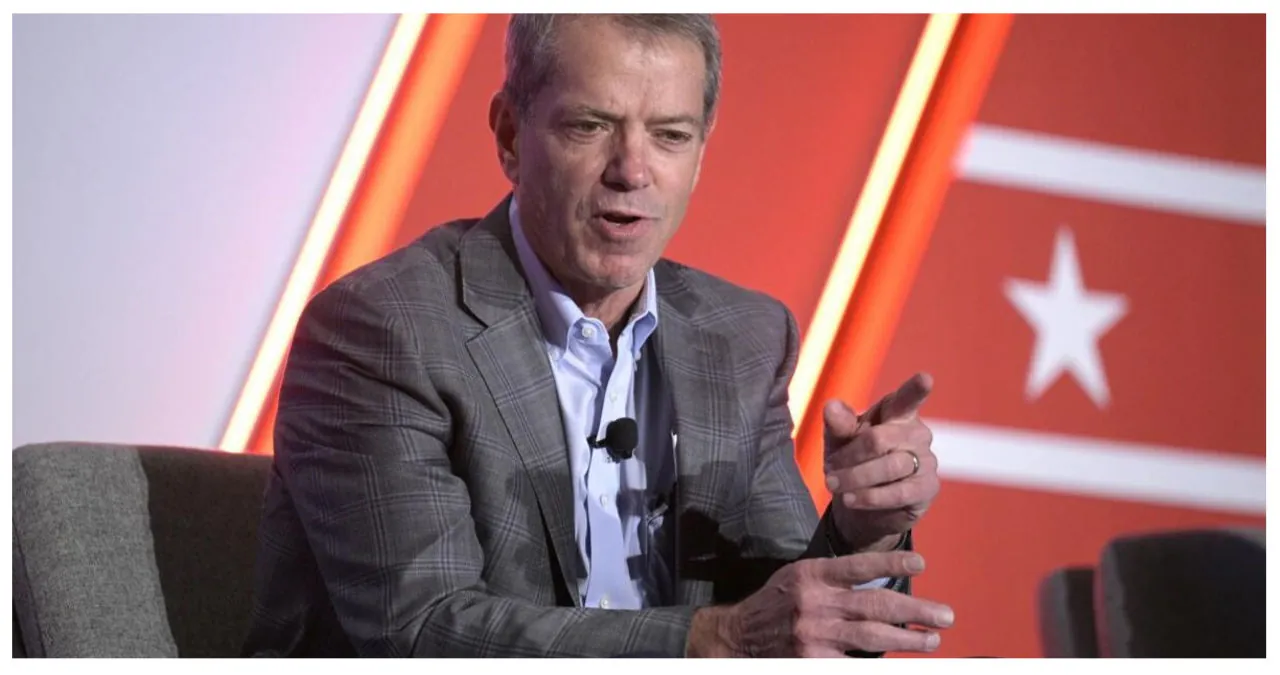Nebraska’s Republican governor reaffirmed his refusal to accept $18 million in federal funding aimed at providing meals for children during the school closures.
In a written statement, Governor Jim Pillen announced that Nebraska will not be taking part in the 2024 Summer Electronic Benefits Transfer for Children (Summer EBT) program. This decision was met with opposition from advocates for children and low-income families, who organized a news conference outside the Governor’s Mansion in Lincoln. They urged Pillen to reconsider his stance before the upcoming January 1 deadline for program enrollment.
The program, which is part of the federal assistance made available during the COVID-19 pandemic, aims to support families whose children qualify for free and reduced-price lunches at school. Under this program, eligible families will receive pre-loaded EBT cards, with each eligible child receiving $40 per month throughout the summer. These cards can be used to purchase groceries, similar to the way SNAP benefits are utilized.
In a statement, Pillen expressed his belief that COVID-19 is behind us and that Nebraska taxpayers anticipate the conclusion of government relief programs implemented during the pandemic. On December 19, Pillen announced that Nebraska would not partake in the program. However, his defense of this decision during a news conference, where he stated, “I don’t believe in welfare,” has sparked significant backlash and criticism.
Iowa, a neighboring state, has also decided to opt out of the program. Governor Kim Reynolds, a Republican, recently made this announcement, stating, “An EBT card does not contribute to promoting nutrition, especially when childhood obesity has reached epidemic proportions.”
States participating in the federal program must shoulder half of the administrative costs, which are projected to amount to around $300,000 for Nebraska. Supporters of the program emphasize that the expense of administration is easily justified by the substantial $18 million benefit. According to the U.S. Department of Agriculture, this benefit would reach approximately 175,000 children in Nebraska who may otherwise experience hunger on certain days throughout the summer.
Advocacy group Nebraska Appleseed delivered a petition with over 6,100 signatures from 230 communities in Nebraska, urging the state to make use of the federal Summer EBT program. The petition signers emphasized the crucial need for the program, particularly in the face of rising inflation that has surpassed the income levels of many households.
A mother from Bruno, a small rural town in eastern Nebraska, expressed her concerns about the high cost of living. As a single mom working full time, she faces financial challenges. Her son’s active lifestyle and growing appetite add to the strain on her budget. She hopes that having extra money for food would alleviate some of the financial burdens, allowing her to allocate funds towards bills, savings, and car maintenance.
Pillen emphasized on Friday that the state will maintain its support for children facing food insecurity by means of the Summer Food Service Program. This program ensures that meals and snacks are available at different locations when school is not in session. Additionally, offering on-site services enables providers to identify and report concerns such as malnutrition, neglect, and child abuse.
However, critics argue that not all families have the opportunity to access the on-site programs, especially in the expansive rural areas of Nebraska, where these sites can be located miles away from families in need.
Jenni Benson, president of the Nebraska State Education Association, which is the largest teachers union in the state, emphasizes the fundamental importance of supporting families who face financial difficulties. In her words, “No kid ever said, ‘I want to be born into a family that struggles.'” She questions why we would even contemplate the idea that individuals, especially children, should be deprived of something as basic as food.
Preston Love Jr., an esteemed community advocate in Omaha, raised doubts on Friday about Pillen’s decision to reject the federal funding, suggesting that it may have been influenced by political pressure.
“I’ve had the opportunity to get to know the governor to some extent, and from my interactions with him, he has shown himself to be a reasonable individual. He engages in conversations with compassion,” Love expressed. “This recent behavior is quite unlike him. It’s evident that he’s not acting in accordance with his true beliefs, but rather succumbing to political pressures. It’s truly disheartening to witness such political posturing, especially when it involves the welfare of innocent children.”
According to the USDA, as of Friday, 28 other states, along with six other U.S. territories and Native American tribes, have confirmed their participation.
More News:

